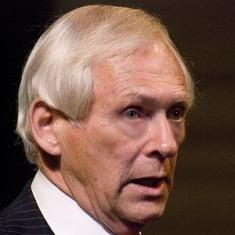The National Trust for Scotland has promised to “drive forward an ambitious programme of change” after the final report of its independent strategic review outlined a range of governance and strategic criticisms.
The report argues that the Trust “is gridlocked by its governance structures”, and calls for its 87 trustees and 100 non-executives on panels and committees to be replaced by a board of 15.
Led by former presiding officer of the Scottish Parliament George Reid (pictured), the review also includes the revelation that the Trust does not hold an inventory of what it owns.
It adds: “The Trust is not sustainable as presently organised. It balances its books by using legacies as ready income, by selling assets, and by delaying project work.
“It has no complete record, in a single data base or document, of what it owns. There is no strategic plan. The current budget was prepared on a needs-must basis only.”
Responding to the report, chief executive Kate Mavor said: “George Reid and his review team have correctly identified that the Trust has been heavily over-governed for far too long and that its management has been held back through the existence of such a top-heavy structure.
“For our part we firmly believe the reforms to the governance of the charity can be introduced within the timescale set.
“We also believe change is essential to take the National Trust for Scotland forward and meet the important conservation challenges ahead.”
“Poorly led for some time”
A spokesman for In Trust for Scotland, the campaigning group set up by dissatisfied NTS members, welcomed Reid’s report, but added:
“His revelation that the Trust had no complete inventory of its properties and moveable assets comes as a shock but no surprise in an organisation which had been poorly led for some time.
“We note the commitment of the chief executive to rectify this as part of a long overdue thorough audit. Members and volunteers continue to be concerned about the whereabouts of assets at certain properties.”









